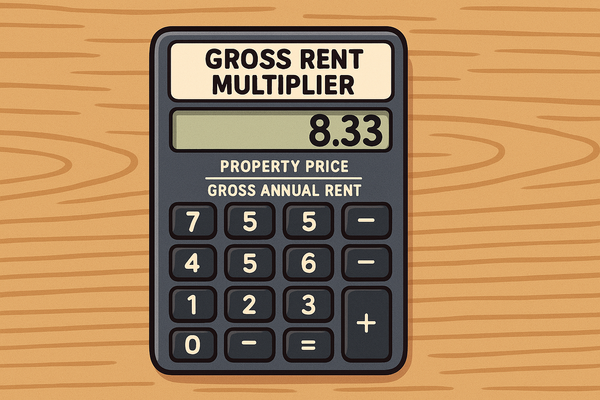Massachusetts Squatters Rights Guide: Understanding Adverse Possession Laws
In Massachusetts, a squatter is defined as someone who occupies an abandoned, vacant, or neglected property without the owner's permission or legal authority.

Introduction to Squatters' Rights in Massachusetts
- Definition: In Massachusetts, a squatter is defined as someone who occupies an abandoned, vacant, or neglected property without the owner's permission or legal authority. Unlike trespassers who simply enter property illegally without intention to stay, squatters specifically intend to inhabit the property for extended periods.
- Adverse Possession: Massachusetts law allows individuals occupying property without permission to potentially gain legal ownership under certain conditions through the doctrine of adverse possession.
- Property Owner Concerns: Property owners need to understand these laws to protect their investments, particularly for seasonal or vacant properties which are especially vulnerable to unauthorized occupation.
- Historical Purpose: Adverse possession laws originally developed to ensure productive use of land and resolve boundary disputes, though today they often create challenging situations for legitimate property owners.
Squatter Snippet: Real Case from Massachusetts
In Cape Cod, Massachusetts, a family discovered that their grandparents' summer cottage had been invaded by squatters during the off-season. What began as a seasonal vacancy escalated into a crisis when the unauthorized occupants transformed the quaint vacation home into what authorities later identified as a drug den. Local police were called to the property multiple times, with emergency responders having to administer Narcan to individuals who had overdosed.
When the original squatter entered rehabilitation, his entire family—approximately ten people—moved into the small two-bedroom cottage. The squatters caused extensive damage, driving trucks across the yard and cutting down most of the vegetation. Despite clear evidence of breaking and entering, property damage, and illegal activities, police informed the legitimate owners that this was considered a civil matter rather than criminal.
The court case took an unexpected turn when the squatter family's mother appeared with an oxygen tank, complaining about the condition of the house and demanding the owners clean it up, fix various issues, and refill the furnace with heating oil. Although the judge saw through much of this deception, the squatters were still given an additional 30 days before removal, and the owners were ordered to refill the oil tank. When the technician arrived to deliver oil, he discovered dangerous amateur plumbing and electrical work, with cut water lines and fuel leaking into a flooded basement.
This extraordinary case highlights the complex challenges Massachusetts property owners face when dealing with squatters and the frustrating legal process required to resolve such situations.
Key Timeline: Statutory Period in Massachusetts
Did you know Massachusetts has one of the longest adverse possession periods in the entire country? This is excellent news for property owners! At 20 years, Massachusetts provides significantly more protection against squatter claims than many neighboring states.
The statutory period is the most critical element in understanding squatter risks. This timeline determines how long someone must continuously occupy your property before they can even begin the process of claiming ownership rights. The longer this period, the better protected you are as a property owner:
- Required occupation period: 20 years in Massachusetts
- Continuous possession requirement: Occupation must be without significant gaps for the entire period
- Comparison with neighboring states:
- Connecticut: 15 years
- Vermont: 15 years
- Rhode Island: 10 years
- New Hampshire: 20 years
- Maine: 20 years
- New York: 10 years
- Timeline exceptions:
- Military service may pause the timeline
- Legal incompetence/disability may extend the statutory period
CHART: Adverse Possession Timeline Comparison
| State | Required Years | Special Conditions |
|---|---|---|
| Massachusetts | 20 years | No explicit requirement for tax payments or color of title |
| Connecticut | 15 years | Similar basic requirements to MA |
| Vermont | 15 years | Similar basic requirements to MA |
| Rhode Island | 10 years | Similar basic requirements to MA |
| New Hampshire | 20 years | Similar basic requirements to MA |
| Maine | 20 years | Similar basic requirements to MA |
| New Jersey | 30 years | Longest period in the region |
| Pennsylvania | 21 years | Slightly longer than Massachusetts |
Quick Guide for Property Owners
- Know your timeline: Squatters can claim rights after 20 years of continuous occupation in Massachusetts
- Documentation matters: Keep property records, tax receipts, and inspection logs to prove your ownership and attentiveness
- Regular monitoring required: Vacant and seasonal properties are most vulnerable to squatter occupation
- Legal obligation: Self-help eviction methods (changing locks, removing belongings, cutting utilities) are illegal in Massachusetts
- Act quickly: The longer squatters remain, the more difficult removal becomes, though 20 years provides substantial protection
- Proper notices: Follow legal eviction procedures when removing unauthorized occupants
Prevention: Protecting Your Property
Did you know that vacant properties in Massachusetts are 4-5 times more likely to experience squatter problems than occupied ones? This shocking statistic highlights why prevention should be your number one priority as a property owner.
When it comes to squatters, an ounce of prevention truly is worth a pound of cure. Taking proactive steps to secure your property is far less expensive and stressful than going through the lengthy eviction process required to remove unauthorized occupants. The good news is that effective prevention doesn't have to be complicated or incredibly expensive.
Massachusetts property owners have several proven strategies at their disposal. These range from simple, low-cost solutions like regular property checks to more comprehensive security systems. Let's explore the most effective prevention techniques you can implement right away to protect your investment:
- Regular inspections:
- Visit property at least quarterly, more frequently for vacant properties
- Document each visit with photos/notes
- Effective security measures:
- Secure all entry points with quality locks
- Consider alarm systems that alert you to unauthorized entry
- Install motion-activated lighting and cameras
- Clear signage:
- Post "No Trespassing" signs visibly on all sides of the property
- Mark property boundaries clearly to prevent accidental encroachment
- Property management options:
- Hire professional management for vacant properties
- Consider rental options for long-term vacancies instead of leaving property empty
- Documentation practices:
- Keep tax payment records up to date
- Maintain utility connections even for seasonal properties
- Take dated photographs regularly to document condition and ownership
CHART: Property Risk Assessment Matrix
| Property Type | Risk Level | Recommended Prevention | Estimated Cost |
|---|---|---|---|
| Vacant Land | High | Boundary marking, regular inspections, relationships with neighbors | $-$$ |
| Abandoned Building | Very High | Security system, regular inspections, property management | $$-$$$ |
| Seasonal Property | High | Security system, neighbor relationships, regular off-season inspections | $$-$$$ |
| Investment Property | Medium | Professional management, tenant screening, regular inspections | $$-$$$ |
Removing Squatters: Step-by-Step Process
- Document the situation:
- Take photos/video of occupation
- Gather ownership documents and proof of legitimate ownership
- Issue proper written notice to vacate:
- 14-day pay or quit notice (for nonpayment)
- 7-day quit notice (for lease violations)
- Unconditional notice to quit (for illegal activity)
- File eviction complaint (summary process action):
- File with appropriate Massachusetts court (Housing, District, Superior, or Boston Municipal Court)
- Include all required documentation showing ownership
- Attend court hearing
- If successful, obtain eviction order
- Sheriff enforces removal, not property owner or local police
-
What NOT to do:
- Do not change locks yourself
- Do not shut off utilities
- Do not remove squatter's belongings
- Do not threaten or intimidate
- Do not use physical force
- Do not rely on local police (they cannot remove squatters, only sheriffs can)
-
Timeline expectations:
- Notice period: 7-14 days depending on notice type
- Court processing: 4-8 weeks
- Eviction enforcement: 48 hours to several weeks after judgment
CHART: Eviction Process Timeline
[Discovery of Squatter] → [Documentation: 1-2 days] → [Notice to Vacate: 7-14 days] →
[Court Filing: 1 day] → [Waiting for Hearing: 4-8 weeks] → [Court Hearing: 1 day] →
[If successful, Wait for Order: 1-7 days] → [Sheriff Enforcement: 48 hours+ after order] → [Property Returned]
Total estimated timeline: 6-12 weeks minimum
Legal Requirements for Adverse Possession
-
Hostile/Adverse Claim
- Occupation without the owner's permission
- No valid lease or rental agreement exists
- Common misunderstanding: "hostile" doesn't require antagonism, just lack of permission
-
Actual Possession
- Physical occupation of the property
- Using the property as an owner would (maintaining, improving)
- Evidence includes regular presence, furniture, maintenance activities
-
Open and Notorious Possession
- Occupation must be visible and obvious to anyone observing the property
- Not secretive or hidden
- Neighbors would recognize the person as appearing to be the occupant
-
Exclusive Possession
- Squatter doesn't share possession with the rightful owner or others
- Maintains control over the property
- Acts as the sole possessor with right to exclude others
-
Continuous Possession
- Uninterrupted occupation for the full 20-year statutory period
- Seasonal use may qualify if it matches how an owner would use the property
- Brief absences for vacations or temporary purposes don't necessarily break continuity
CHART: Adverse Possession Requirements Matrix
| Requirement | Required in Massachusetts? | Evidence Courts Accept | Common Pitfalls |
|---|---|---|---|
| Hostile/Adverse Claim | Yes | No permission documents, no rent payments | Having any form of permission, even verbal |
| Actual Possession | Yes | Evidence of living there, improvements made | Only occasional visits, minimal use |
| Open & Notorious | Yes | Visible occupation, recognized by neighbors | Hidden or secretive occupation |
| Exclusive | Yes | Sole control of property, excluding others | Sharing occupation with owners or others |
| Continuous | Yes | 20 years of uninterrupted occupation | Significant gaps in occupation |
Frequently Asked Questions
-
"Can I remove squatters myself?"
- No, self-help eviction is illegal in Massachusetts
- Must follow legal eviction process even for unauthorized occupants
-
"Do squatters have to pay property taxes?"
- Tax payment is not explicitly required in Massachusetts for adverse possession
- However, evidence of tax payments may strengthen a squatter's case in court
-
"What's the difference between a squatter and a trespasser?"
- Trespassers: Short-term unauthorized presence, treated as a criminal matter
- Squatters: Ongoing occupation with intent to stay, treated as a civil matter
-
"Who should I contact first - police or sheriff?"
- For immediate safety concerns: Police
- For eviction enforcement: Sheriff (only after court order)
- Note: Police cannot remove squatters in Massachusetts without court order
-
"Can squatters claim abandoned property?"
- Yes, if all adverse possession requirements are met for 20 years
- Abandonment may actually strengthen their claim by making occupation more exclusive
-
"How quickly can I evict a squatter?"
- Typical timeline: 6-12 weeks minimum
- Factors affecting timeline: court schedule, squatter defenses, evidence quality
CHART: Decision Tree for Property Owners
Discovered Someone on Your Property
├── Emergency/Dangerous Situation? → Yes → Call Police
│ └── No ↓
├── Recent Entry (Less than 24 hours)? → Yes → Call Police (Trespasser)
│ └── No ↓
├── Evidence of Established Occupation? → Yes → Legal Eviction Process Required
│ └── No ↓
└── Uncertain Situation → Consult Attorney Before Taking Action
Recent Legislative Changes in Massachusetts
-
Recently Passed Laws:
- Massachusetts remains relatively conservative in its approach to squatter laws
- No significant recent changes to the fundamental 20-year statutory period
-
Legislative Trends:
- Some states have been strengthening property owner protections and streamlining eviction processes
- Massachusetts continues to maintain a balance between property rights and potential adverse possession claims
- The lengthy 20-year requirement provides significant protection compared to many other states
Massachusetts-Specific Considerations
-
Color of Title in Massachusetts:
- Definition: A document that appears to convey ownership but is legally invalid
- Impact on statutory period: No explicit reduction in the 20-year requirement
- However, having color of title may strengthen a squatter's case in court
-
Burden of proof requirements:
- Squatter must prove all elements of adverse possession by clear and convincing evidence
- High standard of proof makes successful claims relatively rare
-
Exceptions to adverse possession:
- Section 31 of Massachusetts General Law Chapter 260: No adverse possession against conservation land, open space, water protection areas, wildlife protection zones, parks, recreational areas, or land for public purposes
- Section 53 of Massachusetts General Law Chapter 185: No adverse possession against registered land, easements, or other rights therein
-
How Massachusetts differs from neighboring states:
- Longer statutory period than Rhode Island, Connecticut, Vermont, and New York
- No explicit requirement for tax payments unlike some other states
- Allows claims against government-owned property not in exempted categories
CHART: Massachusetts vs. Neighboring States Comparison
| Factor | Massachusetts | Connecticut | Vermont | Rhode Island |
|---|---|---|---|---|
| Statutory Period | 20 years | 15 years | 15 years | 10 years |
| Color of Title Impact | No explicit reduction | Similar to MA | Similar to MA | Similar to MA |
| Tax Payment Required | No | No | No | No |
| Special Conditions | None | None | None | None |
| Strictness Rating | 4/5 | 3/5 | 3/5 | 2/5 |
Advanced Legal Process
- Court proceedings typically involve presenting evidence of ownership, documentation of the unauthorized occupation, and proof that the squatter does not have legal right to remain
- Successful eviction results in a judgment for possession and potentially monetary damages for unpaid rent or property damage
- Squatters may raise defenses including tenant status, adverse possession claims, or procedural errors
- Appeals can extend the process by weeks or months
- If squatters have lived on the property close to the 20-year mark, owners should consult specialized real estate attorneys immediately
- Prevention is far less costly and time-consuming than removal
Real-World Examples
- The Cape Cod cottage case illustrated the challenges even when squatters have been present for much less than the required 20 years
- Most successful adverse possession cases in Massachusetts involve boundary disputes between neighbors rather than entire property claims
- Courts have consistently upheld the strict 20-year requirement, providing substantial protection for attentive property owners
- Seasonal property owners face particular challenges with monitoring during off-seasons
Resources
-
Current Massachusetts Squatters Rights Laws:
-
Landlord-Tenant Information:
Legal Disclaimer
DISCLAIMER: The information provided in this guide is for general informational purposes only and should not be construed as legal advice on any subject matter. The content contained herein does not establish an attorney-client relationship.
This guide about Massachusetts squatters' rights and adverse possession laws is intended to provide general information and should not be relied upon as legal advice. Laws and regulations regarding property rights, adverse possession, and eviction procedures vary by jurisdiction and may change over time. The information presented here may not reflect the most current legal developments or address your specific situation.
No reader should act or refrain from acting based on information in this guide without first seeking professional legal advice. Property owners dealing with squatters should consult with a qualified attorney licensed to practice in Massachusetts for advice tailored to their particular circumstances.
The authors, publishers, and distributors of this guide expressly disclaim all liability in respect to actions taken or not taken based on any or all of the contents of this document. They shall not be responsible for any errors or omissions in this information or any consequences arising from its use.
This guide is provided "as is" without warranty of any kind, either express or implied, including but not limited to implied warranties of merchantability, fitness for a particular purpose, or non-infringement.
Copyright © 2025. All rights reserved.





